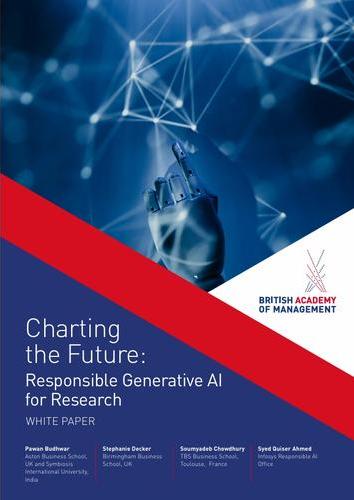Charting the Future: Responsible Generative AI for Research
BAM White Paper
Authors:
This white paper is the first of the series, focusing on the responsible use of AI in research. It represents an enormous effort in bringing together the evidence in this dynamic field and distilling this to provide practical guidance for our community.
By developing a range of initiatives, we aim to privode rigorous evidence and case study examples of how AI might be used in academia, as well as sharing practical guidance to help academics use AI responsibly.

DOWNLOAD HERE
Note: This White Paper references certain commercial AI tools, platforms, and web services solely to illustrate concepts and provide examples. We do not endorse or recommend any specific product or provider, and all mentions are for informational purposes only. Product capabilities, availability, and terms may change over time; readers should conduct their own due diligence and consult institutional policies before selecting or using any tools. Any trademarks or brand names remain the property of their respective owners.
The principles and practices outlined in this White Paper extend to the use of AI and including its variants like generative AI tools (and platforms) in the business and management research.
Budhwar, P., Decker, S., Chowdhury, S., & Ahmed, S.Q. (2025). Charting the Future: Responsible Generative AI for Research. White Paper. The British Academy of Management.




